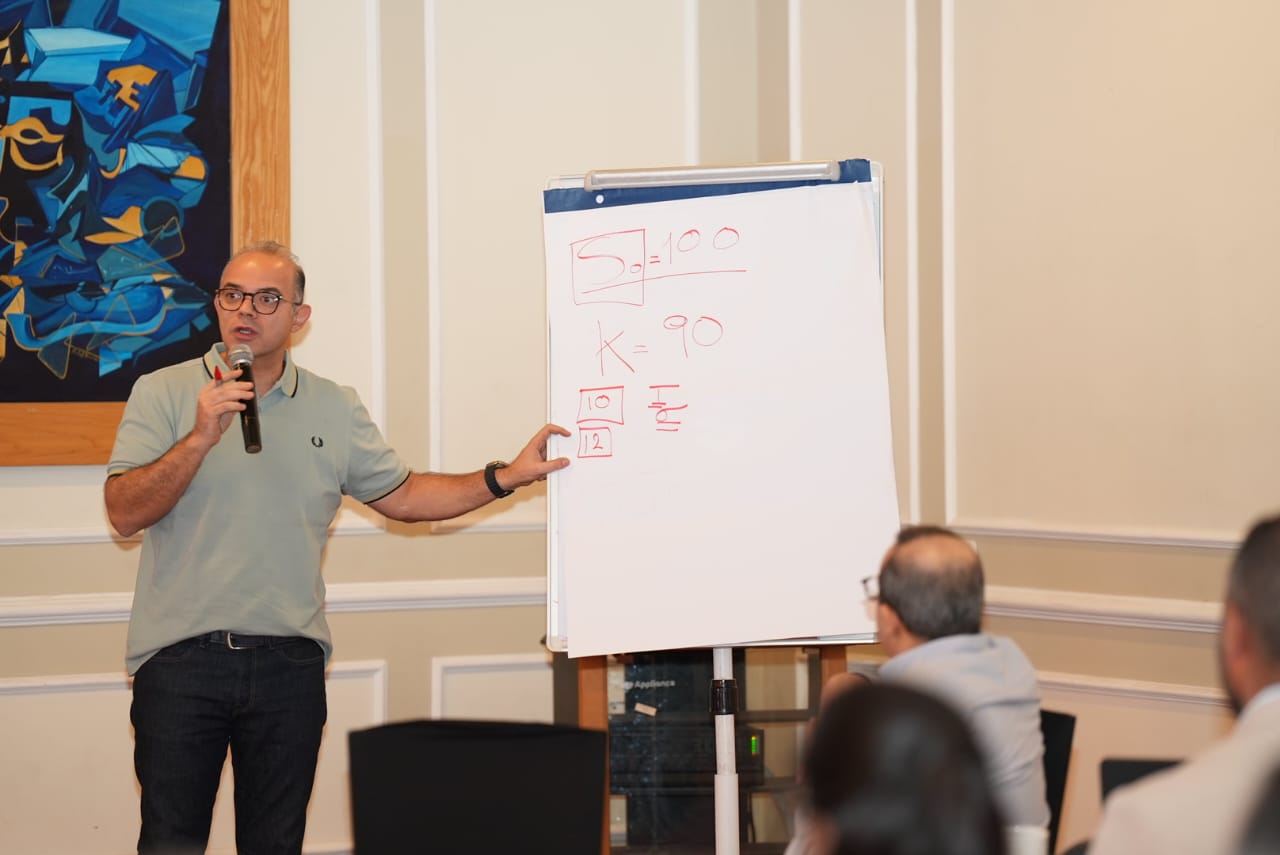- The meeting featured presentations covering Insurance sector, FRA’s Regulatory Sandbox, Digital Investment Platforms, Voluntary Carbon Market and efforts to raise awareness of non-banking financial services.
FRA conducted a two-day training workshop for economic editors to review key performance indicators and ongoing reform initiatives. The workshop acknowledged the critical role of journalists in raising awareness of non-banking financial services, including capital markets, insurance and non-banking financial services.
The training sessions offered comprehensive presentations detailing the Authority’s recent key developments. These focused initiatives included the ongoing development of the insurance sector; new regulations governing digital platform investment across Real Estate Investment Funds, Venture Capital and Private Equity Funds; the major milestone of establishing the first regulated Voluntary Carbon Market in both Egypt and Africa; and the official inauguration of the Regulatory Sandbox to foster technological applications. Additionally, FRA highlighted its continued efforts dedicated to promoting and enhancing financial literacy.
The core of the workshop sessions centered on the Unified Insurance Law, enacted in July 2024. This law was highlighted as a landmark legislative achievement aimed at unifying the legal and regulatory framework for the insurance sector, thereby enhancing the efficacy of supervision and oversight. FRA emphasized that the law’s broad scope which covers insurance, reinsurance and all related supporting services will develop non-banking financial markets and will enhance financial inclusion.
The first part of the workshop delved into technical aspects of the capital market. It featured a detailed explanation of various financial derivatives – including forwards, futures, options and swaps – stressing the importance of these new tools in boosting the overall efficiency of the Egyptian capital market. Furthermore, a presentation covered short selling mechanism.
The second part of the sessions focused on pivotal regulatory decisions implemented under the Unified Insurance Law. These mandates included strict capital requirements, notably obligating insurance companies to raise their minimum issued and paid-up capital in two phases to reach EGP 600 million. In addition to establishing specific rules, controls and percentages for investing the funds of insurance and reinsurance companies to achieve a balance between return and risk and enhance asset management efficiency. That is besides setting specific deadlines for preparing financial statements of companies and insurance pools, supporting the principles of transparency and financial governance.
The sessions highlighted the significance of FRA’s resolution to launch the Regulatory Sandbox for technological applications. This crucial move is designed to support and ease market entry for FinTech startups offering digital solutions. The Sandbox will also enhance FinTech understanding, allowing the Authority to improve regulatory practices and foster sustainable, inclusive financial growth. Ultimately, the goal is to boost innovation across the non-banking financial sector by proactively creating a regulatory environment that delivers new financing, investment and insurance solutions to both individuals and businesses.
This initiative is crucial for keeping pace with unprecedented technological development and serves stakeholder interests by creating an interactive ecosystem. This ecosystem connects smart solution providers with non-bank financial institutions, research centers, universities, business incubators/accelerators, investors and global technology companies.
The workshop sessions specifically detailed the Authority’s plan to implement a comprehensive legal framework for digital platforms. This process started by regulating Digital REIF platforms to ensure a safe, transparent and effective investment environment. Following this, other regulations were established to govern digital platforms that allow investment in private equity and venture capital funds.

Moreover, the workshop highlighted the Authority’s pioneering launch of the first regulated Voluntary Carbon Market (VCM) subjected to the supervision of capital market bodies and serves as a unique regional and international model. Attendees reviewed the efforts to establish the market’s regulatory rules, including launching a platform for registering carbon reduction projects and setting controls for the issuance and trading of carbon credits to ensure maximum transparency and effective governance.
The sessions further showcased the Authority’s initiatives to raise financial literacy and awareness which is a key component of its strategy for developing the Non-Banking Financial Services (NBFS) Sector. This effort targets enhancing financial literacy and awareness across all societal segments, particularly young people, ultimately driving greater levels of financial, insurance and investment inclusion.
Within this strategy, the Authority concentrates on disseminating awareness regarding various financial, insurance and investment solutions. The aim is to empower citizens to make informed financial decisions, thereby fostering new employment opportunities and enhancing living standards through access to diverse financing for private project initiation or expansion. This comprehensive approach provides strong support to the national economy. A key part of this initiative is a protocol signed with the Ministry of Youth and Sports to promote non-banking financial literacy among the youth.
FRA continues its efforts to establish foundations of a more developed and deeper non-banking financial market by enhancing the knowledge and elevating the competence of both stakeholders and media professionals. This contributes to the accurate and clear communication of the Authority’s message and objectives to the public. FRA will actively host training programs and events to drive market development. These efforts are crucial for boosting transparency and efficiency of non-banking financial activities, ensuring they adhere to best international practices and ultimately serving Egypt’s strategic goals of economic development and investment stimulation.
Last modified: October 27, 2025
